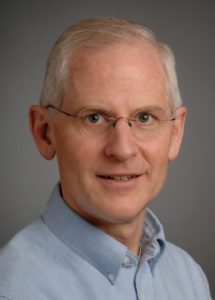
Date: November 15, 2018
Time: 12:30 p.m. - 1:30 p.m.
Location: Maeder
Richard Moss, senior visiting research scientist at Columbia University’s Earth Institute, will discuss “Science to Inform Adaptation and Mitigation: A New Model for Assessments” as part of the 2018/2019 Highlight Seminar Series.
ABSTRACT
Many cities, states, tribes, and private interests see the need to respond to the risks of climate change. They have conducted vulnerability assessments and developed adaptation plans. Now what? Practitioners report that their plans are stalling and not being implemented in part because institutional, legal, financial, and public policy prerequisites for action are not in place. For most jurisdictions and settings, information is missing to help mainstream climate risk into planning, codes/standards, financial risk assessments, and other processes necessary for actually taking action. What sources of climate information should be used? How can climate risk be incorporated into bond rating, updating of capital improvement plans, or other contexts? Preliminary work is beginning on these topics, but climate assessments, a widely used approach for evaluating science to answer policy questions, have not begun to focus on applications and build consensus knowledge about how to use what we know to manage climate risk. The speaker will consider the potential role of a civil society “climate assessment consortium” to supplement Federal assessments and provide knowledge needed to scale up decision support and a national climate information system. The presentation will preview conclusions from a report by the Independent Advisory Committee on Applied Climate Assessment, successor to a Federal Advisory Committee that was discontinued by the Trump administration in August 2017.
BIO
Richard Moss is senior visiting research scientist at Columbia University’s Earth Institute. He is on leave from the Joint Global Change Research Institute at the University of Maryland. Moss’s research focuses on (1) scenarios; (2) vulnerability and adaptation; and (3) uncertainty characterization. He previously served as director of the US Global Change Research Program, head of technical support for Working Group II of the Intergovernmental Panel on Climate Change, and director of climate/energy at the UN Foundation and World Wildlife Fund. He received his Ph.D. from the Woodrow Wilson School, Princeton University in public and international affairs.
The 2018/2019 Highlight Seminars Series will be held on Thursdays from 12:30 p.m. – 1:30 p.m. in Maeder Hall at the Andlinger Center. Lunch will be served at 12:00 noon in the auditorium lobby of Maeder Hall.